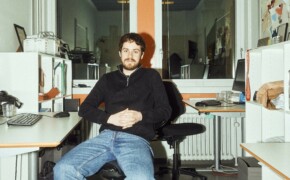Universitetsavisen
Nørregade 10
1165 København K
Tlf: 35 32 28 98 (mon-thurs)
E-mail: uni-avis@adm.ku.dk
Section
The workshop is a key part of the cutting-edge research at the Niels Bohr Institute. It has, perhaps, the best working environment at the University of Copenhagen. And it can solve almost impossible tasks. Now they have finally got the pendulum swinging again

Human biologist Emil Andersen got an idea about how to cheaply measure the sperm quality of men who struggle with fertility. Now he has created an international business.

An investigation method that combined the analysis of DNA and genealogy may have solved a 34-year-old murder case. The Department of Forensic Medicine at the University of Copenhagen helps the Danish police solve crimes.

Assistant Professor Marie Larsen Ryberg has observed courses where students were completely overwhelmed. But she found that this was precisely where the students learned the most. Here she offers up her advice on how teaching can open up a space for uncertainty.

Nicklas Brendborg is a bestselling author with two books on how we can live longer. The inspiration comes from the animal kingdom, and from experiments on his own body. We visited him in the laboratory where he is a PhD student.

Medical doctor and postdoc Amani Meaidi spends all her waking hours working against one particular imbalance: The amount of research into men's and women's diseases. She is so obsessed with women-specific genes that she sometimes gets a stress rash on her hands.

One younger research activist, and one established professor. They come from two different places. But they both reach the same conclusion: Research is in big trouble. Maria Toft and Ole Wæver want to set up a free Nordic research movement with the space for creative, playful, and experimental research.

Researchers can now spot behaviour showing who is at risk after building an algorithm and a huge data set. »We hope that our study can be used to predict and prevent a young person from ending up being in risk of suicide,« says associate professor of psychology.

Female students have a harder time being perceived as talented than their male classmates by male instructors. Researchers stumble upon a subconcious bias in teaching settings at one faculty.

Magnus Pharao Hansen read Tolkien at the age of ten and fell for it. As a teenager, he wrote a dictionary of Old Norse. Today he deciphers ancient Mesoamerican languages and has just got an EU grant of DKK 11 million.
